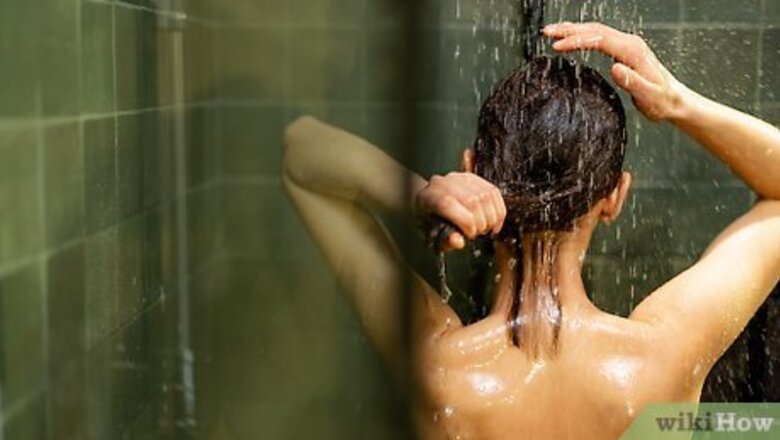
views
Washing Dry Hair
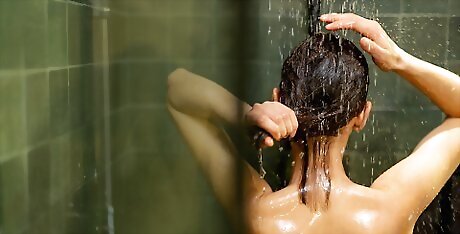
Wash your hair less frequently. When you have dry hair, washing too often can strip the moisture from your hair, causing your locks to become even more dehydrated. If you currently wash everyday, switch to every other day. If you wash every other day, switch to every third day. Wash as infrequently as possible to keep the moisture in your hair. If your roots start to look greasy or your hair is flat in between washes, use a dry shampoo to soak up excess oil and add texture to your locks.
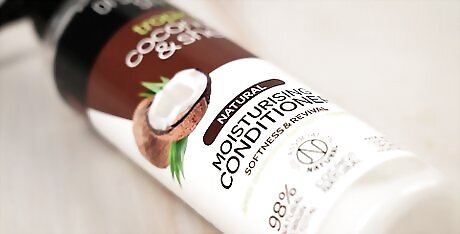
Use a cleansing conditioner instead of shampoo. Traditional shampoos contain sulfates and other chemicals that dry out your hair. Instead of washing with shampoo, use a cleansing conditioner, which uses natural oils to cleanse and condition at the same time. They leave your hair feeling clean and moisturized. Make sure that your hair is completely saturated with water before you apply the cleansing conditioner. When you’re using a cleansing conditioner, apply it from the roots to the ends. While a cleansing conditioner can keep your hair clean, you can still get buildup from styling products, deep conditioning treatments, and sweat. To get rid of it, use a clarifying shampoo every two to four weeks instead of the cleansing conditioner. If you don't want to use a cleansing conditioner, opt for a sulfate-free, natural shampoo. Look for a formula that contains ingredients such as argan oil, almond oil, coconut milk, honey, aloe vera, shea butter, and other organic naturals that won't strip your hair of moisture.
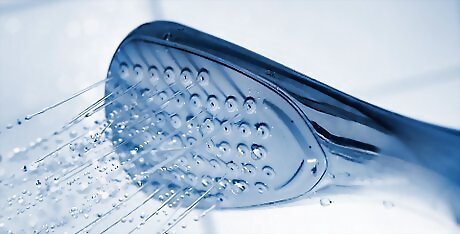
Rinse your hair with cool water. When you’re rinsing your hair after washing it, don’t use hot water. The heat can actually dry out your hair, leaving it even more brittle and dehydrated. Instead, use cool water to rinse the shampoo or cleansing conditioner from your hair. For the final rinse of your hair, it’s a good idea to use cold water. Not only does it seal the cuticle and lock the moisture in, but it leaves your hair looking shinier too.
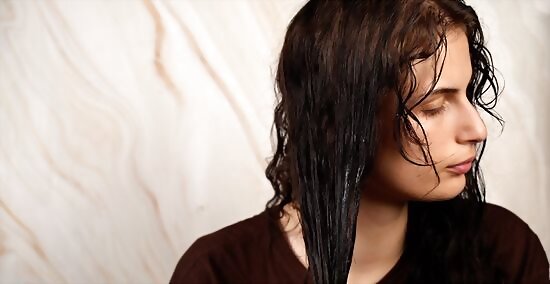
Apply a leave-in conditioner. With a cleansing conditioner, you likely don’t need to use a traditional cleanser after each washing. However, it’s a good idea to boost the moisture in your hair by using a leave-in conditioner. Work it through your hair after you’ve towel dried it. A spray leave-in conditioner works best on fine or thin hair. A cream or lotion leave-in conditioner works best if you have thick or curly hair. Follow the instructions on leave-in conditioner’s bottle for the proper amount to use.
Styling Dry Hair
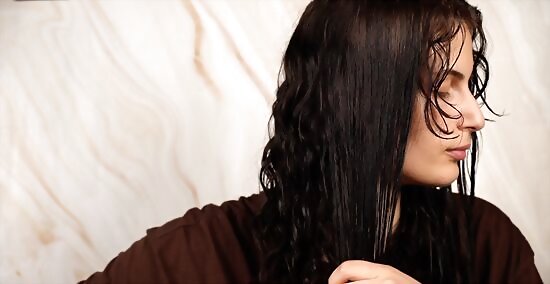
Brush your hair with a natural bristled brush. When you have dry hair, a brush with synthetic bristles is more likely to snag your locks, leading to breakage. It can also cause static electricity that leaves your hair more brittle. Instead, opt for a brush with natural bristles, which are more gentle. A brush with boar or wooden bristles is the best bet for dry hair.
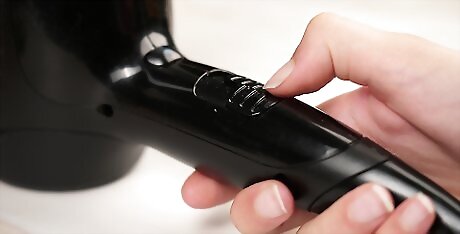
Limit heat styling. Using heated styling tools, such as a curling iron or flat iron, can dry out your hair further. It’s best to limit your use of heat styling to once a week. Blow drying your hair can also cause moisture loss in your hair, so air dry your locks whenever possible. When you do heat style your hair, always apply a heat protectant product. It coats your hair with extra moisture so your hair doesn’t lose any of its natural moisture when it’s heated. Use a heat protectant spray if you have fine or thin hair. Use a heat protectant lotion or cream if you have thick or curly hair. When you use a curling iron, flat iron, or blow dryer, use the lowest heat setting possible to achieve your desired results. Low to medium heat is the best option.
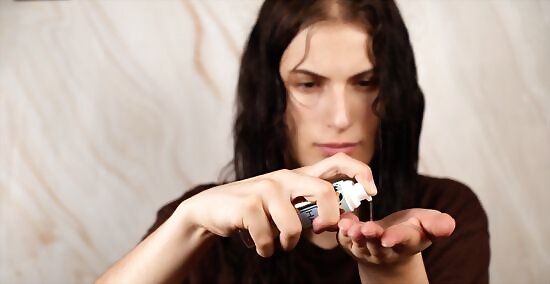
Use a hair oil. Dry hair needs all the extra moisture it can get, so incorporating a hair oil into your styling routine is a good way to hydrate your locks. You can use on wet or dry hair to not only add moisture, but make your hair appear smoother and shiner. Argan oil is the best hair oil for dry, brittle tresses. For wet hair, spread a small out of oil between your hands and work it through your hair for smoothness and shine. Apply a small amount of hair oil to the ends of dry hair to get rid of frizz and camouflage the look of split ends.
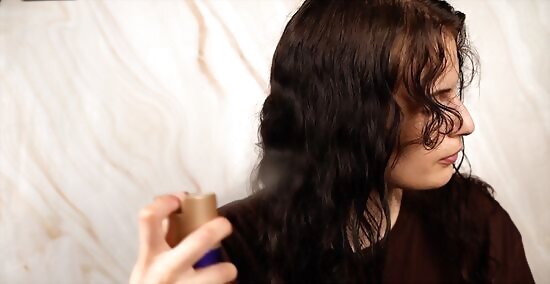
Apply a hairspray with UV protection. When you’ve finished styling your hair, you’ll probably want to lock it in place with a hairspray. An alcohol-free formula is the best choice for dry hair because it won’t dry out your locks. However, you should also choose a spray that offers UV-protection, so you don’t have to worry about the sun drying out your hair either. If you’re going to be out in the sun for an extended period of time or don’t want to use a spray with UV-protection, wear a wide-brimmed hat to protect your hair.
Taking Extra Steps for Dry Hair
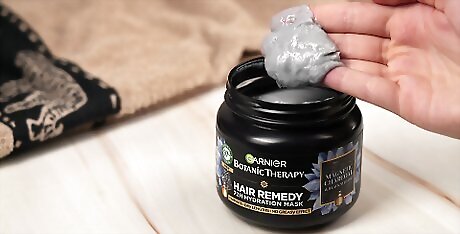
Deep condition your hair weekly. To ensure that your dry hair gets the moisture that it needs, you should use an intensive deep conditioning treatment once a week. Apply the deep conditioner after washing your hair, and allow it to soak into your hair for 10 to 20 minutes before rinsing it off. While you’re letting the deep conditioner sit on your hair, you can boost its moisturizing power by putting a shower cap or plastic wrap over it. The extra heat will help the conditioner penetrate your hair more easily. Choose a deep conditioner with moisturizing ingredients, such as glycerin, shea butter, olive oil, argan oil, and keratin or other proteins.
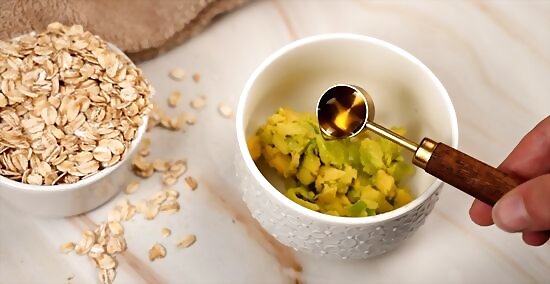
Use natural DIY hair masks. Many ingredients that you have in your kitchen can actually help moisturize and strengthen dry hair. Mayonnaise and honey are both ideal conditioners for dry hair. Apply either to wet hair and allow it to sit for at least 20 minutes before rinsing it out with warm water. Avocado also makes an ideal mask for dry hair. Mix a mashed ripe, peeled avocado with about 2 teaspoons (10 ml) of an oil, such as olive, jojoba, or wheat-germ. Apply it to freshly washed hair, cover your head with a shower cap, and let it sit for 15 to 30 minutes before rinsing it out. Egg yolks are also excellent for moisturizing dry hair. Apply the yolks from 5 to 6 eggs to clean, wet hair, and allow it to sit for 20 minutes. Be sure to rinse it out with cool water to keep the egg from "cooking."
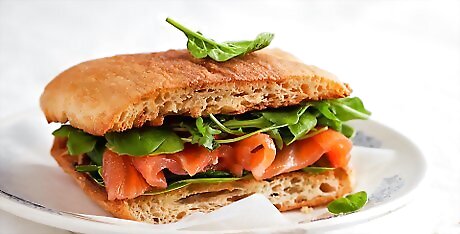
Incorporate more omega-3 fatty acids in your diet. The foods that you eat can impact your hair. For dry hair, it helps to eat a diet that’s rich in omega-3 fatty acids, which can assist your scalp in producing more natural oils. Salmon, tuna, egg yolks, walnuts, and spinach are all high in omega-3 fatty acids. If you aren’t a fan of foods that provide omega-3 fatty acids, talk to your doctor to see if taking an omega-3 supplement is a good option for you.
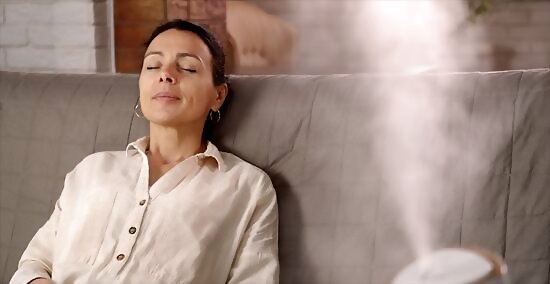
Sleep with a humidifier in your bedroom. If you live in a dry climate or the weather for the season is dry, your environment can affect your hair. Keeping a humidifier in your bedroom is a good idea because it will produce moisture that can hydrate and condition your hair while you sleep. Pay attention to the thermostat in your home too. If you have your heat turned up too high, your hair may become even more dehydrated.
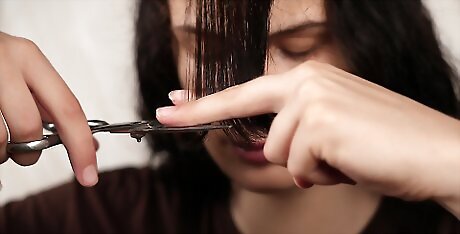
Get your hair trimmed regularly. The ends of dry hair are usually the most dehydrated and brittle. To keep your hair looking its best, have your hair trimmed every four to six weeks.


















Comments
0 comment